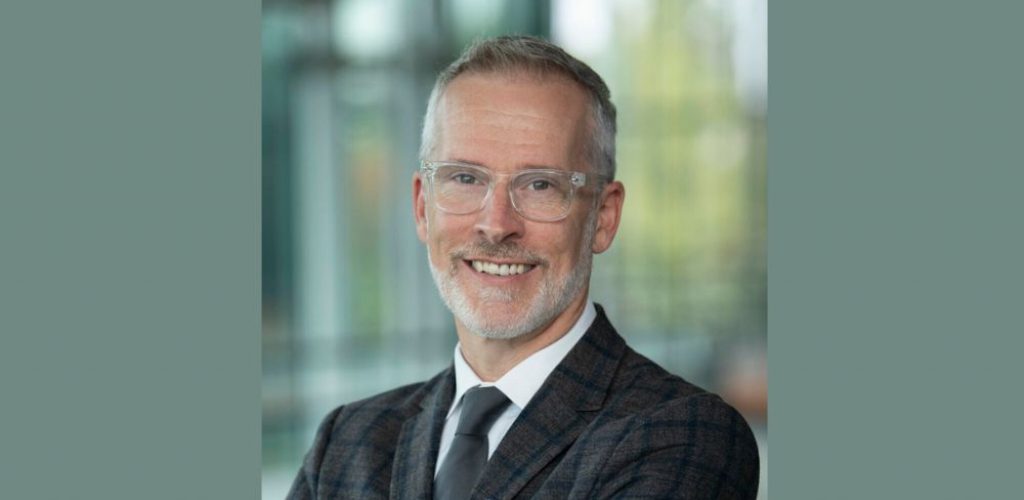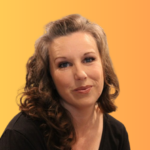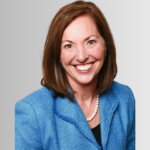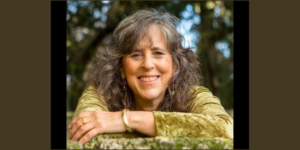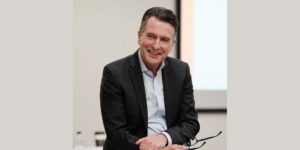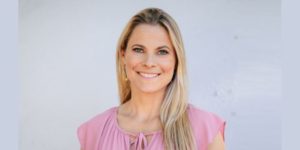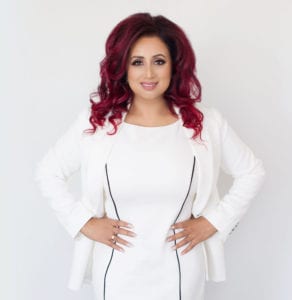Raj Girn: My guest today is David Tate, a licensed clinical psychologist who is also an executive coach and an organizational consultant. Here’s a bit about him before we say hello. He is the co-founder and CEO of Conscious Growth Partners, a consultancy firm that promotes organizational thriving through optimal leadership, teamwork and corporate culture. David has worked with leaders and senior managers in financial services, health care, manufacturing, distribution, publishing, media, design, education, technology and construction.
He is an assistant clinical professor in psychiatry at Yale University, where he also received the Distinguished Faculty Award. He is a lecturer at the Yale School of Management, where he teaches within both the graduate and executive education programs. He is also a coach. He coaches global leaders within the Yale Greenberg World Fellows Program as a two-time author.
His most recent book, called Conscious Accountability: Deepen Connections, Elevate Results will help us break down our theme for today’s show, which is how conscious accountability is the key to leadership success.
Here is our conversation:
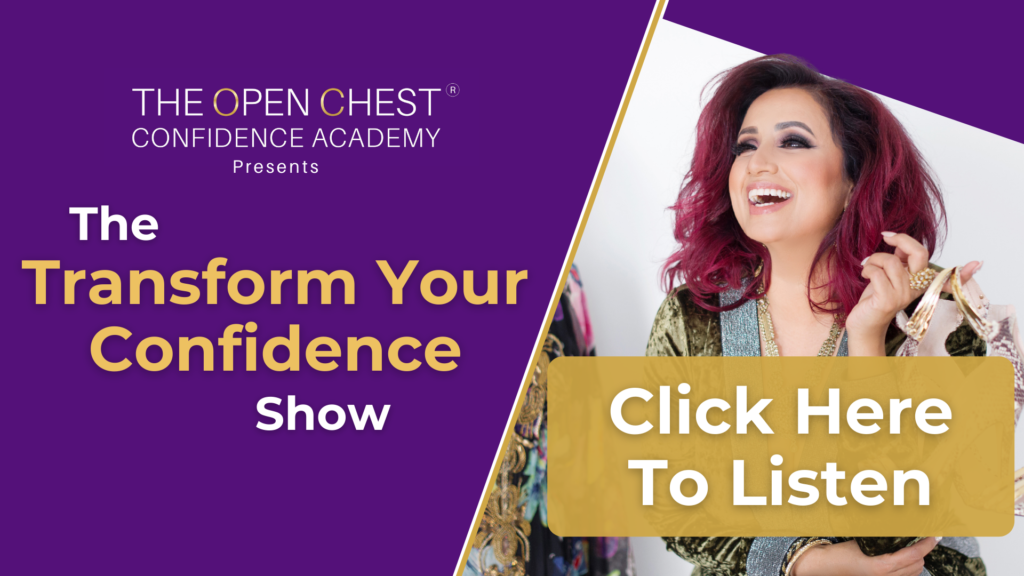
Raj Girn: Now, please welcome to the show the enigmatic David Tate. I’m so happy to have you on. David, thank you so much for agreeing to be on and to chat about your wonderful philosophies. Thank you.
David Tate: Thank you, Raj. It’s such a pleasure to be here and to be with you and with all of the folks who tune in.
Absolutely. Well, let’s just dive right in. David, I want to ask you a little bit of context first for people who aren’t fully initiated with some of the philosophies around what we’ll be talking about just so we can dive a little deeper as we go into our conversation.
My first area of topic for you is this: We’re going to be talking about conscious accountability, as I mentioned off the top. But before we do, I want to preface this. And it’s a statement of yours where you say that accountability in general is crucial for personal and professional success, as well as the organizational and societal progress.
Can you maybe high-level a little bit of what that means for people before we dive into the conscious accountability piece, which is the next thing that I want to dive into?
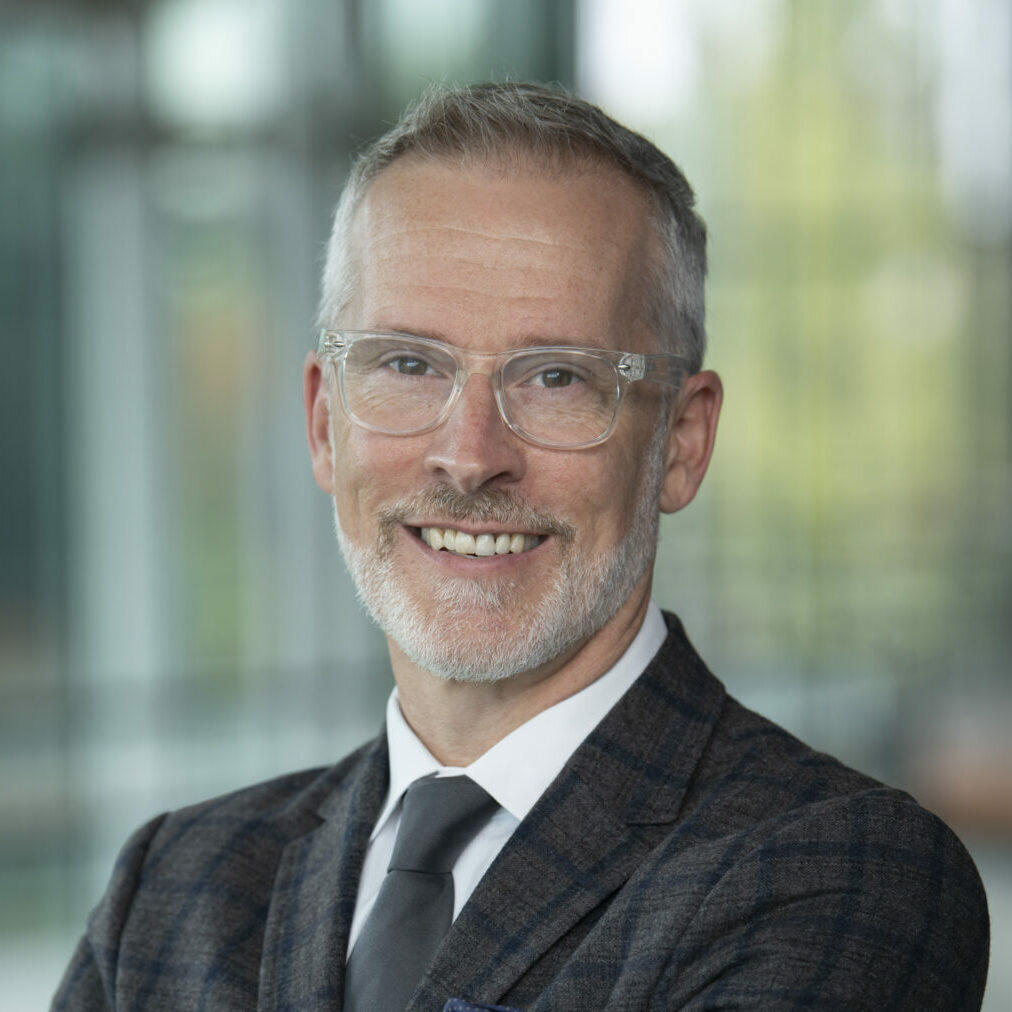
Credit: @Amazon.com
Sure. Absolutely. Let’s start with accountability and why that’s so important. First of all, I think about accountability as necessary for progress. It’s like the engine of progress without some kind of accountability.
It’s hard for folks to get things done to achieve their goals, whether they’re goals in life, your personal goals, or whether they’re your professional goals. Having some kind of accountability allows us to strive and to actually move forward, end to end to get those goals. So that’s one important piece.
Another important piece is about relationships, which is the idea that accountability in many ways undergirds trust. And trust is like the bedrock of healthy relationships. In the presence of accountability, our relationships get stronger and trust gets stronger.
And in the absence of accountability, relationships and trust erode and relationships get weaker. So those are two big reasons. And I’ve got more where that came from.
Give us more. Let’s just really get in there so people understand. Because I find, especially with a lot of the clients that I work with, especially with a lot of mentorships that I do . . . David, I know you can attest to this being that you’re an educator as well. That’s the big piece between actually getting to where you want to get to with an intention in mind that makes sense for that journey, than just dreaming about getting there like that. The accountability, the action piece, is so incredibly important and I talk about it all the time.
Tell us a little bit about your thoughts around that. Because that’s the connection I feel a lot of people don’t quite get. The deep, the heartfelt, the spiritual desire to accomplish a specific goal requires an intention of why first of all. You’re getting there. Why do you want to get there? And then the other piece is, where am I? And reverse engineering. How do I get to that place?
That’s right.
We know that this is the goal. There’s certain milestones we have to hit to get to the goal. And then there’s certain tasks in between the milestones to hit those milestones to be able to get to the goals. You know what I’m saying?
Yeah, absolutely. And well, listen, now I feel like we’re speaking coach to coach here because this is why coaching works so beautifully, because we show up for our clients as accountability partners that really help them stay true and faithful to their own agendas, to the things that matter most to them.
But without that accountability, so many of us can have desires, wishes, dreams that can go unfulfilled. And accountability is the thing that helps people get over the hump, get out of their own way, get into action and move steadily.
“Without that accountability, so many of us can have desires, wishes, dreams that can go unfulfilled. And accountability is the thing that helps people get over the hump, get out of their own way, get into action and move steadily.” ~David Tate
Of course not without slips and bumps and setbacks sometimes, but still steady progress towards the things that they want to achieve in the world.
Absolutely. And is there anything else David, that you feel people need to know about accountability in general before we dive into the whole conscious accountability piece?
Some other things that I think of as being at stake when we’re talking about why accountability is important, why does accountability matter? I mean, let’s think about the relationship between accountability and our reputation. Reputation is a is a big thing. We all, as individuals, create reputations. Teams have reputations, organizations have reputations. And I believe it has something to do with the degree to which people are accountable.
In other words, again, if you deliver on what you say that creates one kind of reputation. And if you fail to do that, that creates a different kind of reputation. So, I think that’s an important thing to be aware of in terms of how you’re perceived and received by the world has something to do with us and our willingness and our ability to be accountable.
Secondly, even within ourselves, the idea of creating integrity within oneself, knowing that to yourself, when I say I’m going to do this, I’m going to follow through and I’m going to make it happen. When we are accountable to ourselves, we strengthen our own sense of personal integrity, which is really, I think, such an important part of healthy personhood is having having a sense of integrity within oneself. So that’s another layer to this.
And then a couple of other elements. You mentioned I’m an educator and I think that and as a coach, of course, we’re also helping people develop skills and learn and grow. And accountability is necessary in that kind of growth process. So for people to grow, for people to develop, having some kind of education or some accountability and some feedback about how they’re doing, these are the what they’re hoping to achieve, all of that supports learning and growth and development. And in the extreme cases, accountability makes the difference between life and death.
Now, let’s think about accountability in the operating room, accountability in the air traffic control tower or other places where people need to do exactly what they say they need to do. And if they fail to do that, there can be disastrous consequences. So for a host of reasons, accountability is really so essential to human thriving, to human well-being, to progress, to learning. It really is everywhere. It touches almost every facet of life.
Absolutely.
Yeah.
So much to think about there for everyone watching, listening or reading this. And this is a thing, right, David? Out there, because we’re all kind of connected to each other via technology, we hear these words get thrown around.
Accountability is one of the words that we throw around. It becomes part of pop cultural language. And oftentimes when that happens, we actually lose truly how important that word is in terms of your life.
And I feel that you’ve prefaced this beautifully in terms of the different levels of possible things that could go wrong if you’re not accountable, as well as the possibility of truly how you can step into the greatest version of who you could be for yourself and for the people that you love and for the people that rely on you.
So let’s dive in now. I feel that’s a great place for us to go into and explore conscious accountability. What is this, David? What makes it different from general accountability? Or is it another phase of accountability that will help us achieve general accountability, so to speak?
Great question. Thanks for that. In thinking about conscious accountability, the idea here is that bringing a heightened consciousness to our efforts to be accountable, raises the game, raises what’s possible.
“In thinking about conscious accountability, the idea here is that bringing a heightened consciousness to our efforts to be accountable, raises the game, raises what’s possible.” ~David Tate
And what I can do is I can share a couple of ways. Let me define conscious accountability for you. Term first.
Let’s do that.
Would that be helpful?
Yes.
The idea of conscious accountability, what it really means is, first of all, expanding awareness to create deliberate intentions, take informed actions, and be responsible for your impact. That’s how we define conscious accountability. Let me break that down a little bit.
So again, this idea of expanding awareness, there’s a lot to be aware of, right? Being aware of ourselves, our own motives, our own needs, our own wishes and desires are the way we tend to approach things, bringing that awareness and then awareness of others, right?
Not just being aware of ourselves, but being dialed into the people in our lives who matter, the people who we interact with, the stakeholders that we are working with in some way, shape or form, being aware of what their needs are. What it is that they need and expect from us?
And the third piece about awareness is being aware of the interdependencies between us and others and the idea that we are all, you mentioned it earlier, connected and so many times we are less than fully aware of the ramifications of our actions or any actions on other people.
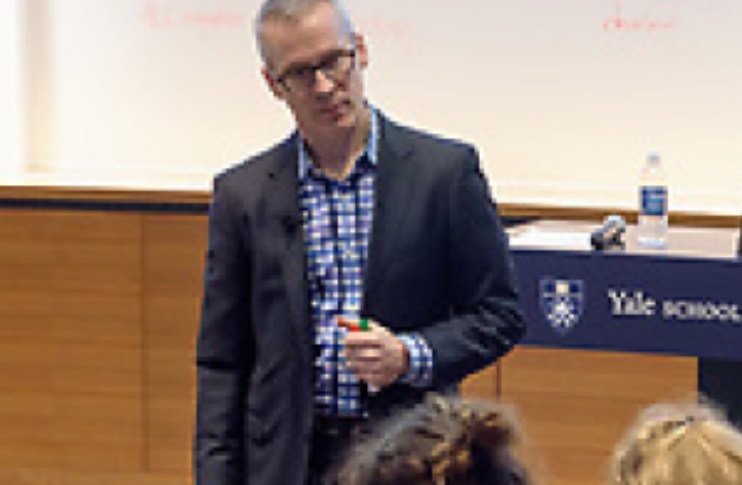
And so as we become more aware of ourselves, others and those interdependencies and those invisible threads that connect us all, we can do a much better job of being able to be more deliberate about how we show up, about what kind of impact we want to have, and hopefully close the gap that sometimes exists between our intentions and our impact and to be responsible for that impact, whatever it may be.
Absolutely. David, there’s so much to think about with some of the things that you’re sharing here. And I feel from my perspective, I have to share something with you as someone that aligns the tactical components of who I am as a human to the spiritual energy perspective of who I am, the inner spirituality.
There’s this whole idea behind like three different stages of consciousness. The subconscious space, which is a space that is hidden. What the reason for that hidden space is a whole other discussion. Then there’s the place of the conscious, the mind. And this is the things that we know. The things that we are tapped into. Then there’s a whole ideology of the super conscious.
Super conscious, right.
And this is where we hope to be, as humans, as we are souls in these bodies that we inhabit. And somehow with the confinements of being these very expansive energy forms, this is what I believe in these structures that were in the human form somehow we have to journey through life where wee can tap into the higher consciousness of who we are and experience life as a human from that higher space.
With all that in mind, I feel that conscious accountability becomes even more important in the whole ideology behind the experience that we’re on as humans.
I want your thoughts on that before I go into a little bit of a different direction.
I really love that framing about this because I do think about conscious accountability as it’s not a destination. It’s a journey that we are on through our entire lives.
“I think about conscious accountability as it’s not a destination. It’s a journey that we are on through our entire lives.” ~David Tate
And we are constantly in the practice of and we talk about the behaviors that help create conscious accountability. We’ll get there in a little while.
But we think about them as practices because there are certain days when our practices are stellar and other days when our practices are not as great. And the point is to continually work on moving forward, trying to, again, work on expanding our consciousness and trying to become the best version of ourselves that we can.
And I do think that to the extent that we can tap into our higher selves to the collective consciousness in some way that connects us all, that we can be the best versions of ourselves. And I think that’s part of what this idea promises.
Absolutely. I want to ask you something, because a lot of people who come onto this show are from different aspects of business and professional space. So I want to loop the whole conscious accountability before we go into how to accomplish that.
I want to loop it back. Why is conscious accountability important for leadership success specifically? And I’m not talking about people who are only leading large organizations, but also those who are in any position of responsibility, because any position of responsibility requires leadership skills. A mother, for example, requires the greatest leadership skills of all because she’s nurturing humans to be able to then move into their own ecosystem of what leadership means for them.
Talk to me a little bit about this whole idea and connection between conscious accountability and how important it is for being successful in leading on any level.
That’s a great prompter waiting for us to continue this conversation. So I think about conscious accountability specifically being different from traditional accountability, what I call accountability 1.0. And, I think leaders, in whatever way, as you mentioned there’s like lots of ways to be a leader in the world. And leaders will get not just better results, but better kind satisfaction and joy out of what they’re doing, I believe, when they are focused on promoting conscious accountability. Let me give you a couple of examples of the way that looks.
So in accountability, one point, this traditional version of accountability, the focus is often on just results only. Let’s just make sure we get it done. Did you do the thing or not? Did you clean your room? Whereas conscious accountability focuses on results and relationships together. It holds them both as co-equals that absolutely reinforce one another. In other words, when we focus on results and simultaneously on building and improving and strengthening our relationships, we get something that’s actually more sustainable in the long run than if we’re just focusing on results. If we’re focusing just on results, we might burn people out.
“When we focus on results and simultaneously on building and improving and strengthening our relationships, we get something that’s actually more sustainable in the long run than if we’re just focusing on results. If we’re focusing just on results, we might burn people out. ” ~David Tate
We might get there. We might achieve the goal. But if we’ve burnt people out in the process, then when it comes to next time, we’re going to be in a worse position. But if we’re focused on results and relationships together, then we’re hopefully driving excellent results and at the same time building relationships that make people say, “Wow. That was great. I’m ready to do that again. Let’s do it even better this time.” And you get a virtuous cycle of improvement and deeper commitment. And it just feels better. So that’s sort of one piece of this.
The other piece of that is that accountability 1.0 is largely focused on an individual perspective on accountability. In other words, I need to be accountable for my part. You need to be accountable for your part, and then it will happen. Conscious accountability always views accountability as a shared endeavor. It’s something that multiple people have a part of it. So in other words, it’s not just did I do my part? It’s of course doing my part but also being curious and aware. How are you doing with your part? What can I do to support you? What do you need from me in order to be your best?
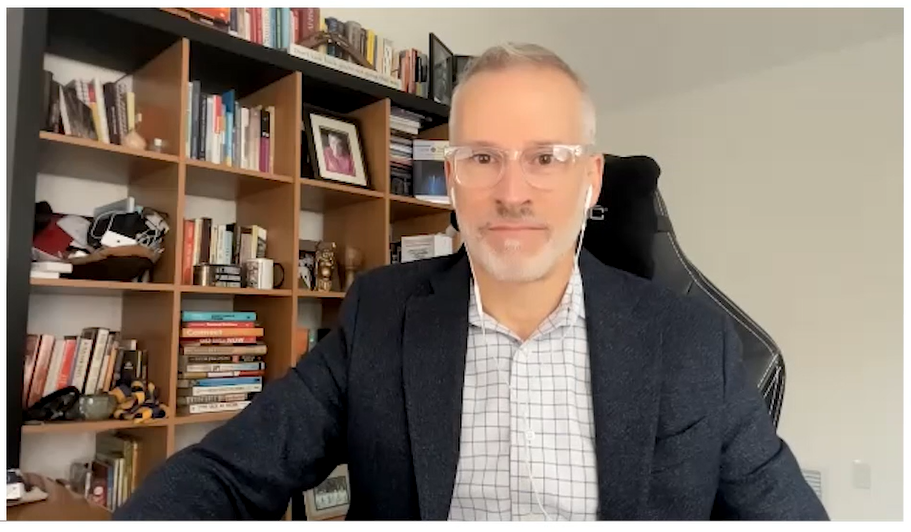
And so it invites a different kind of awareness, not just of oneself, but of the people around you and doing everything that you can to help achieve whatever the collective goal is. Whatever it is that we are trying to accomplish together is better served by this greater awareness of what it really means to be accountable not just to yourself, but creating it all around you.
So essentially speaking, the best form of accountability is not the one-way journey, but the two-way journey that meets to accomplish this goal. That’s what I’m hearing you say.
That’s exactly right.
Okay.
I love that framing.
Let’s tap into this a little bit. We understand what accountability is. We understand what conscious accountability is on high level. Let’s now tap into how do we get there? I want to dive into this methodology that you’ve spearheaded called the CONNECT framework.
This is a set of seven practices that you’ve spearheaded that can really help people create and sustain conscious accountability. Can you break these steps down high level for us David? Let’s really get in there now and give some people tactical ways that they can start easing into this or if they’re already on the journey, maybe they can level this up even further.
Yeah, that’s great. In thinking about accountability, like you said earlier, it’s a word that gets used a lot. It’s discussed. People agree that it’s important. But I found what was missing was this idea of a roadmap. How do we actually get there? How do we actually create it? So that was the impetus for developing this framework.
And so and the acronym we chose was CONNECT for two reasons. One has to do with consciousness, which is the idea that when we make connections in our mind, consciousness requires connecting the dots in ways that we might not have otherwise. And also, of course, the idea that human connection is the thing that we all need as humans. It’s in our DNA.
And when we tap into that kind of connection, it actually helps us elevate our results and improve whatever it is that we’re doing. So CONNECT has a double meaning in that way. So let me walk you through these seven practices.
Let’s do it.
So the first practice is creating clarity in terms of creating establishing clear goals and shared expectations. So this means, first of all, being clear within oneself of what one’s own intentions are, but then being able to communicate those with other people so everybody is on the same page. And it sounds simple to say, but as you know, it’s actually often very challenging to get to clarity and to have that real shared understanding of not just where we’re going, but what is everyone’s contribution going to be. And so that takes some time.
We often say it requires a lot of humility and patience to be in the conversations that allow you to get to clarity. The first practice is really working at clarity. The second practice, the O in CONNECT, is opening up engagement. Here it’s really knowing where we’re going and what we’re doing is important. But being engaged and feeling motivated is really key to getting people on board and working towards achieving things together. So we break this down into two pieces.
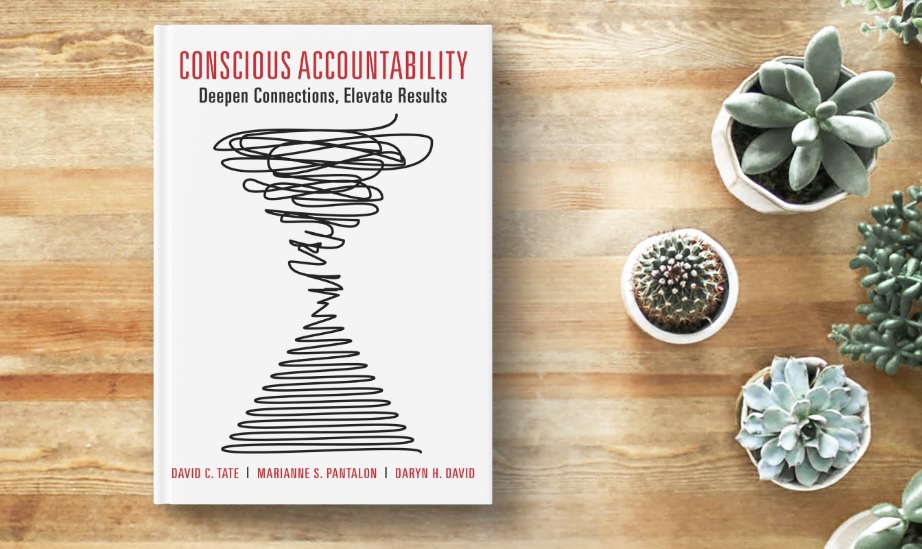
One is commitment helping unlock people’s sense of commitment to what they’re doing and also creating psychological safety. This is so important because unless people feel safe to really share their perspectives, to ask questions, to push back sometimes or suggest a different idea. Unless people feel safe, they’re not going to do that and the potential of what we can achieve actually goes down.
The innovation, the creativity and even the capacity to work through challenges together goes down in the absence of safety. So I believe leaders really need to pay attention to how they are engaging with other people in ways that hopefully open up engagement, that creates safety and builds commitment. So this is a key practice. Do you want to keep going or you want to pause?
“I believe leaders really need to pay attention to how they are engaging with other people in ways that hopefully open up engagement, that creates safety and builds commitment. ” ~David Tate
Yeah. No, I think let’s let people’s minds roll into this jigsaw puzzle here. You know this connection between each of these. We’re on the end.
We’re on the end. And that’s right. And the first N is nailing it and nailing it. Nailing it is simply doing what you say you’ll do, making it happen. And again, it sounds simple, but as we know, we live in a world with competing commitments and pop up priorities and things that threaten to derail us in one way or another all the time. So we have to be mindful of how we are managing those things as they occur and communicating about them.
The next practice in the second N is noticing. And here, as we are working to nail it, as we are working to achieve our goals, this is about paying attention, bringing that conscious awareness to what we’re doing. Noticing how we’re feeling about it. Noticing what is going on with the people around us and checking in with other people to see how they’re doing. To see what they might need in order to be successful. And so many times people, like leaders, will just delegate things and forget about them or assume that they’re going to happen and get surprised unpleasantly when things don’t quite come together. And this practice allows for course correction to happen.
Maybe there needs to be additional clarification. Things weren’t as clear as you thought. Or maybe there was a little bit of drift in terms of where things have gone. And this allows you to really pull things back in and get back on the on track. So that’s the second N. And then we get to the E, which is exchanging feedback. And this means both soliciting feedback, receiving feedback, and giving feedback, all for the sake of promoting awareness and learning. We have an expression that the only the thing you cannot know about yourself is the impact you are having on someone else.
Yes. That matters.
Right? That requires us to be able to get feedback from others. And that will help in turn to elevate our own awareness. But we can’t get that awareness without the participation of others around us who are willing to give us feedback. So we need to give it. We need to ask for it and and to receive it. And then that gets us to the next practice, which is the C, which is claiming it. Claiming it is when we take ownership of our results.
So being willing to share success and share credit when we win with all of the people in a nobody wins by themselves, right? We’re all connected. So being able to share that with others and when things go wrong, being willing to own what’s on your own side of the street and then in a way that allows you to learn again. This model is about learning and using our experiences in life to be able to learn and improve and get better. And that takes us to the final practice, which is trying again, T.
I love this.
So, we’re going to take everything we’ve learned and we’re going to constantly iterate and work on creating continuous improvement. Whether we succeed and whether we fail. There’s always learning available that we can apply to the next situation. So that’s the model right there.
Honestly, I need to stop for a second and bring everybody back to what the title of this book is. It’s called Conscious Accountability: Deepen Connections, Elevate Results. This book is currently available, which talks in depth about the CONNECT framework, right?
That’s right.
So where can we send them to pick up this book? Because, honestly, I need this book as well. Because everything you’re talking about here is stuff that we all, generally as humans, we say, “Yeah, of course that’s what we need to do,” but we don’t actually do all of them. And we don’t actually do them for the right reasons and we don’t actually know what the intention is for each of these steps. Where do we send people to go grab this book?
They can certainly grab it on Amazon. They can grab it at Barnes and Noble online. All of your online retailers are carrying the book so hopefully it’s easy to get your hands on if you’d like to.
Absolutely. So I feel that this is an obvious question, but may not be obvious to everyone. Who was the book created for?
So on one hand it’s broad enough that applies to being human, right? Like, how do we get better humans? But it’s really especially geared for people who rely on other people to get things done.
Right. Right.
If you’re working with other people, if you’re in a team, if you are managing people, if you’re interacting with people to make things happen. This is what can really help people up level their own capacity and make their experience more satisfying and hopefully more successful as well.
A thought just came into my head, David. I feel that anyone that works with people, whether they’re on a responsible leadership side or more of a tactical action side, I feel that both sides of the equation need to actually hone in on this methodology. I honestly don’t feel it’s just for people in positions of responsibility. As you mentioned, it’s so much more than that. It’s for anyone that needs to effectively communicate period.
You’re right, because if you’re an individual contributor in an organization, you still need to be interacting with other folks to be able to deliver what it is that you’re contributing. And that interaction involves communication which of course is fallible in all sorts of ways. And this helps break things down to help people get better at it and to practice whatever it is that they’re doing with more intentionality and figuring out where their own learning edges are so they can continue to improve.
Absolutely. And I feel it also is a book, based on this methodology of yours, that will help people police themselves. Also, how life happens to us and whether it’s in business or personal or we end up going in certain directions that perhaps take us down a journey that maybe is more difficult, maybe is a journey that is taking us too many steps to get to where we need to get to.
I feel that this CONNECT methodology can help us police and stay on track to make sure that those goals that I talked about earlier that require us to hit milestones, that need action steps in between, that all of that actually has a place to hone in on staying on track. I feel that the CONNECT formula will help people do that. I really do. Let me ask you this: What do you hope people get out of this methodology and this book? Is there anything in the book that perhaps we still need to talk about in addition to what the CONNECT framework is?
Well, I mean, at a high level, my wish is that people get a way to practice, like you’re saying give them focal points to help them see where they can improve, where they can grow, where they can be responsible for what they’re bringing to this situation and continually growing and learning.
But at a broader level, what I really hope is that people can hold themselves with compassion and to recognize that it’s okay. We all mess up. We all make mistakes. And that’s a given. I think so many times we can be so hard on ourselves. And this model actually just invites all of that as fodder for learning and for growth. So that’s really what I hope is that people can take a different view of accountability, that turns it from something that for some might feel a little threatening or might feel like something that they’re uncomfortable with to something that’s your best friend, that’s going to really support you and support your growth and the things that matter to you in life. That’s what I really hope, that this can really help support people in living their dreams and getting what they want in life, whether it’s professional or whether it’s personal.
I love everything about our conversation David and I have got to ask you this: For anyone out there that is watching or listening or reading this, that really want to be able to deep dive some of these outside of, or maybe in addition to getting the book, you also consult. Can we talk a little bit about that? What do you consult? Who do you consult and what are the outcomes that people can hope to accomplish through that journey with you?
Thanks for for noting that. So my company with my partners is Conscious Growth Partners. And really, again, our mission is to help organizations thrive through better leadership, teamwork and culture. So we really want to help leaders thoughtfully grow their enterprises by getting the human side.
Right.
And that’s so challenging, especially when folks are trying to grow. There’s often growing pains of various kinds when people are scaling their organizations. So what we do is we create strong relationships with people. We help them get really clear on what it is that they’re hoping to achieve, what their vision is for themselves, and then really help them think about how to do that in a way that is really going to be sustainable by building the team, by building a team around them that can really work together and thrive and move things forward towards their vision.
So that’s really what we do. And we work with leaders and from lots of different sectors and that’s really what we’re inspired by, what other people are trying to achieve in the world. And so we want to partner with them to help make their visions reality and support them by getting all of the the human side of things. Which, of course, is oftentimes a huge challenge.
Right. And it’s the framework. It’s the ground zero that we don’t realize is the ground zero to grow that tree. We don’t focus on it until it becomes a problem. And so the other part of this around the consultancy piece, David, is this predominantly your area that you work in with all of these different industries.
Is it at the point where they’re looking to scale? Is it at the point when they are larger organizations that need to regroup on creating connectivity between the people in their organization because there’s so many different departments? Let’s hone in that. What is your true real client that you’re looking for? Just so we can be clear on that.
Yeah. You know, I think a lot of the leaders who we end up working with are at some kind of a transition point. And they’ve gotten to a certain place of success and they’re looking to go to the next level. I believe it was Marshall Goldman who wrote the book What Got You Here Won’t Get You There. And I think it’s such a great title, because I think it’s really true. A lot of times, people can get so far on the things that come easy to them. But then it may be they need to lean in and develop some other mindsets and skills in order to go to the next level.
“A lot of times people can get so far on the things that come easy to them. But then it may be they need to lean in and develop some other mindsets and skills in order to go to the next level.” ~David Tate
And so it’s at that moment of transition that we often end up connecting with leaders who are looking . . . And it could be . . . you know, we’ve worked with a number of, say, sort of venture and private equity backed firms that have gotten this big infusion of money and can really grow.
But then they have to be really thoughtful about, well, how do I do that and how do we still keep the culture that has made us so great while we’re going through all of these acquisitions and growing? And how do we retain the thing that made us special? I mean, that’s a culture challenge that we’ve seen. Or even with teams, we’ve had this small tight team, but for going to the next level, maybe this isn’t exactly the right team.
Maybe we have to bring on some new voices and new experiences. They may have to deal with a different level of diversity than they’ve had previously. And that can be its own dance that leaders have to get more facile with. And so there’s a number of different ways that we may support leaders.
But I think, to answer your question, it all involves getting to a point where there’s some kind of a transition that they’re wanting to make, hoping to make, and really need some support, some partnership and someone who can help them map it out and work with them to actually make it happen.
Right. Absolutely. Now, if there’s anyone out there that feels that they’re that person, where are we sending them to connect with you?
Please have them reach out to us at our website, which is conscious growth partners.com. They can find us there and we’d be happy to be in dialog about how we can support what they’re trying to do.
I love everything about that. So, David, as we get ready to wrap things up and close and I want to come full circle. I want to come back on the theme, and I’m just going to mention it again. It’s how conscious accountability is the key to leadership success. Is there anything you feel that we haven’t touched upon that you’d like to share at this point, or do you feel we covered everything?
We covered so much in this conversation for sure. I guess the other thing that I would love to be able to to say to the folks who are listening in or watching or reading is just that I think one of the things certainly that the pandemic has taught us is the importance of human connection, the importance of our own well-being, and that those things are linked, our need for connection and that supports wellbeing.
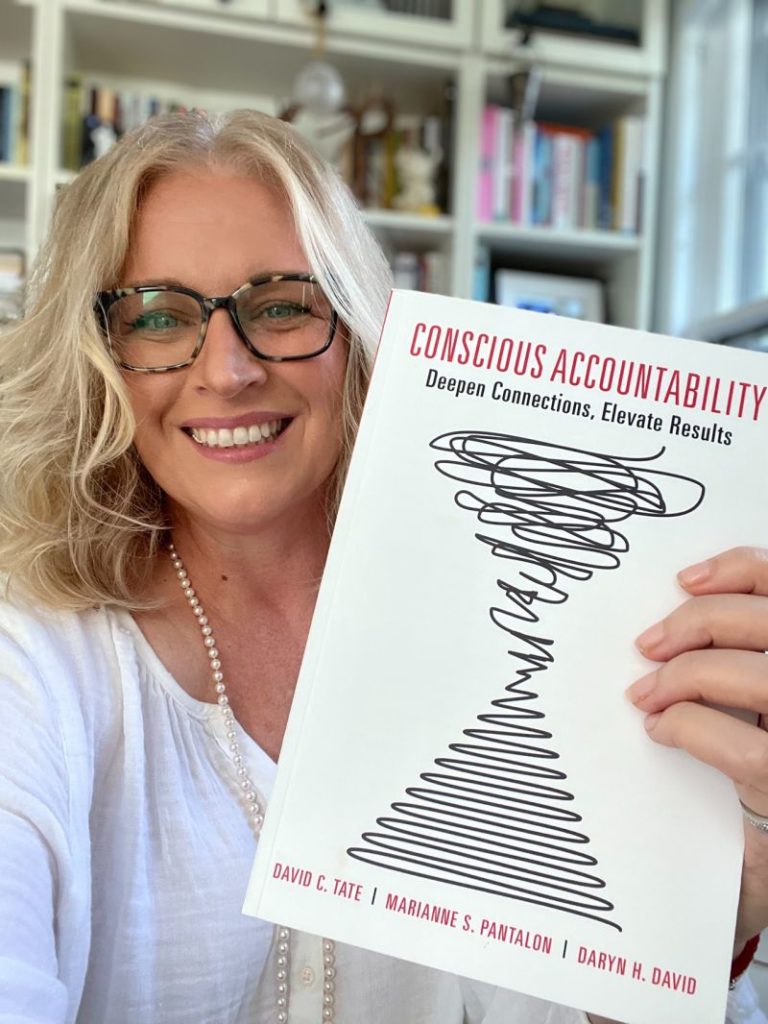
And my wishes for the world, which is embodied in some way in this work, is that we can create spaces in the way we work that promotes our own well-being, that promotes joy because this is our one precious life. So why miss any opportunity to enhance our own experience and that of those around us. And that’s why I believe conscious accountability can help us do that better.
I love that. As we get ready to close off, I want to ask you this: For anyone out there who would like to hang out with you is there like a newsletter? Is there an online community? Are you guys on social where they can garner some resources from you guys and some of the things that you’re doing out there, the great work that you’re doing out there?
Thank you so much. We’re on LinkedIn. I think the easiest way to reach out and stay connected is just to reach out to me on LinkedIn. And we’re in the process of figuring out the ways that we can support more people who just want some support, some connection, some accountability and a learning space around this. We’re looking at ways that we can do that.
So stay tuned. We will be coming back with more information about what that’s going to look like. But as we’ve been opening up these conversations, the energy and the people really wanting that space, that community to connect, to stay accountable to themselves and to be in community with people who are also likeminded in that way.
Absolutely. And David, the other great thing is that not everyone has the wherewithal to be able to tap into one-on-one services. So making community allows more accessibility to be able to tap into just the true expertise and a wealth of wisdom and resources and all the tactical things that need to be done from people like yourself and the ecosystems that you actually live and work in. Right?
And I feel that this community that you guys are going to put together is going to be extremely valuable for that middle management solopreneur type of industries out there that really need people like you, that really need to get it right the first time, if you can, is the point I’m making. Try and get it right the first time. It’s very expensive to get it wrong multiple times. Right?
Absolutely couldn’t have said it better. That is exactly right.
David, thank you so much for coming on and sharing your insights. I thoroughly enjoyed our conversation and I really, truly do believe that your wealth of wisdom and your insights can really benefit everyone watching, listening and reading this. Thank you. Thank you. Thank you.
Raj. It was such a pleasure to be with you today. Thank you so much for having me.
Absolutely. And please come back on when that community is all ready to go so we can invite people into that ecosystem as well.
Absolutely. I’d be happy to do that 100 per cent. I’ll let you know.
Wonderful guys. I really hope that you got some real value from today’s show and will share it with everyone you know who you feel needs to get today’s insights. I hope also you subscribe to my YouTube channel and hit the notification button at The Open Chest Confidence Academy so that you’ll never miss an episode. We drop them every Wednesday.
You can also download The Transform your Confidence Show on podcast platforms and give it a five star rating. Guys, if you feel genuinely that these are resources that can truly assist your journey to empower your confidence with tactical insights, with knowledge that ordinarily you feel that you wouldn’t be able to tap into so you can truly create the life that you deserve, that you know that the people around you deserve to have through everything that you learn in that journey. I also want you guys to hop on over and read the podcast.
If you’re a reader like I am, we have it all transcribed on our blog at theopenchestconfidenceacademy.com/media/podcast. And I’ll see you next week for another invaluable episode packed with insights and learnings to help empower your work, your life and your spirit. Take care of yourself, guys.


